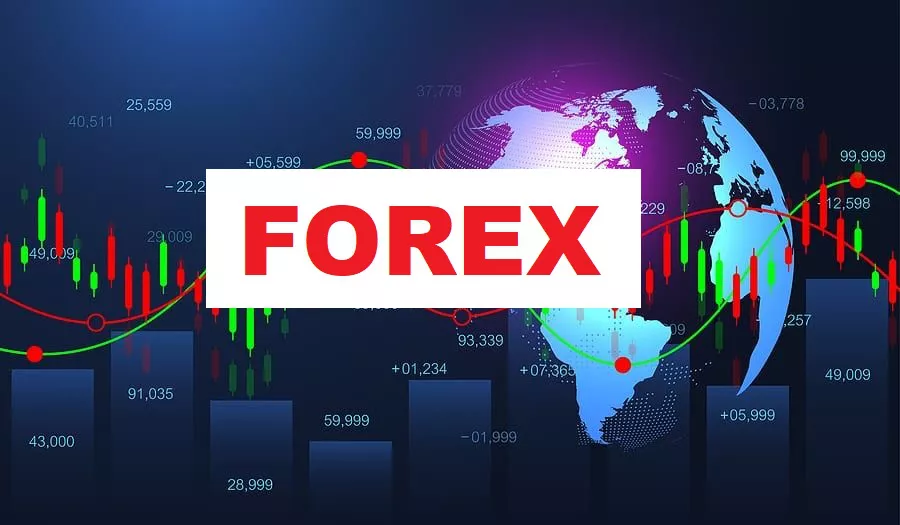In the vast world of finance, forex trading has gained significant popularity in recent years. Forex, short for foreign exchange, involves the buying and selling of different currencies with the aim of making a profit from the fluctuations in their exchange rates. Whether you’re an individual looking to diversify your investment portfolio, a part-time trader hoping to earn some extra income, or a professional trader with extensive experience in the financial markets, knowing where you can trade forex is crucial. There are several options available, each with its own features, advantages, and drawbacks. In this article, we’ll explore in detail the different places where you can engage in forex trading, how they operate, and what you need to consider when choosing the most suitable platform or institution for your trading activities.
Forex Brokers
1. Online Forex Brokers
Online forex brokers are perhaps the most common choice for many traders these days. There are numerous reputable brokers available, such as MetaTrader, IG Group, and eToro. These brokers offer trading platforms that you can access via the internet from your computer or mobile device.
One of the main advantages of online forex brokers is convenience. You can trade forex from anywhere in the world, as long as you have an internet connection. They usually provide user-friendly interfaces that are suitable for both beginner and experienced traders. For beginners, there are often educational resources like tutorials, webinars, and demo accounts. Demo accounts allow you to practice trading with virtual money before you start using your real funds. This helps you get familiar with the trading platform and understand how forex trading works without risking your actual capital.
However, it’s important to choose a reliable and regulated online forex broker. Look for brokers that are regulated by well-known financial authorities such as the Financial Conduct Authority (FCA) in the UK, the Australian Securities and Investments Commission (ASIC) in Australia, or the Commodity Futures Trading Commission (CFTC) in the US. Regulation ensures that the broker follows certain standards and safeguards your funds. You should also check the broker’s spreads (the difference between the buying and selling price of a currency pair), commissions (if any), and the range of currency pairs they offer. Some brokers may have wider spreads or charge higher commissions, which can affect your profitability.
2. Retail Forex Brokers
Retail forex brokers specifically target individual traders. They offer services that are tailored to meet the needs of everyday people who want to get involved in forex trading. These brokers usually have lower minimum deposit requirements compared to some other options, making it accessible for those with limited capital.
For example, you might find a retail forex broker that allows you to start trading with as little as $100 or even less in some cases. They also provide customer support to help you with any questions or issues you might have during the trading process. However, be cautious as not all retail forex brokers are equally reliable. Some may engage in unethical practices like stop hunting (manipulating prices to trigger stop-loss orders of traders). So, do your research and read reviews from other traders before choosing a retail forex broker.
3. Institutional Forex Brokers
Institutional forex brokers mainly serve large financial institutions like banks, hedge funds, and investment firms. They offer more sophisticated trading services and often have access to deeper liquidity pools. This means that they can execute large trades with minimal impact on the market price.
While individual traders usually can’t directly use institutional forex brokers (unless they have a significant amount of capital and meet certain requirements), it’s still important to understand how they operate. Institutional brokers typically have more complex trading platforms that require a higher level of expertise to use. They also offer customized trading solutions and may provide in-depth market analysis and research reports to their clients. The fees and spreads with institutional brokers can vary depending on the volume of trades and the specific agreements made with clients.
Banks
1. Commercial Banks
Many commercial banks offer forex trading services to their customers. Banks like Bank of America, Citibank, and HSBC have forex trading desks where you can place trades. Trading with a bank can give you a sense of security as they are highly regulated financial institutions.
When you trade forex through a bank, you can often get personalized advice from their financial advisors. They can help you understand the market trends and make more informed trading decisions. However, banks may not always offer the most competitive spreads or the widest range of currency pairs. Their trading platforms might also be less user-friendly compared to some online forex brokers. Additionally, banks usually have higher minimum deposit requirements, which can make it difficult for small traders to get started.
2. Investment Banks
Investment banks such as Goldman Sachs and JPMorgan Chase are also involved in forex trading. They handle large volumes of currency transactions for themselves and on behalf of their clients. While individual retail traders generally don’t have direct access to these banks for forex trading, investment banks do play a significant role in shaping the forex market.
They have teams of professional traders and analysts who closely monitor the market and execute trades based on various strategies. Their actions can influence currency prices and market trends.
For example, if an investment bank decides to sell a large amount of a particular currency, it can cause the value of that currency to decline. Understanding how investment banks operate in the forex market can give you insights into the overall market dynamics, even if you’re trading through other channels.
Forex Exchanges
1. Centralized Forex Exchanges
Centralized forex exchanges are platforms where multiple participants come together to trade currencies. Examples include the Chicago Mercantile Exchange (CME) in the US. These exchanges operate in a regulated environment and provide a transparent marketplace for trading.
On a centralized forex exchange, trades are matched based on orders placed by different participants. They usually have strict listing requirements for the currency pairs that can be traded.
This helps ensure the quality and liquidity of the traded assets. However, trading on these exchanges may require a certain level of knowledge and experience as the trading processes can be more complex compared to using some online brokers. You may also need to pay membership fees or transaction fees to access and trade on these exchanges.
2. Decentralized Forex Exchanges
Decentralized forex exchanges are a relatively new concept in the forex trading world. They operate on blockchain technology and aim to eliminate the need for intermediaries like traditional brokers or exchanges. Platforms such as Uniswap (which is mainly known for trading cryptocurrencies but is also exploring forex trading applications) are examples.
Decentralized exchanges offer more privacy and control to traders as they allow direct peer-to-peer trading. They also claim to reduce the risk of market manipulation as there’s no central authority controlling the trading process. However, the liquidity on decentralized exchanges can be lower compared to centralized ones, and there may be issues with regulatory compliance and security as the technology is still evolving. So, they are more suitable for traders who are willing to take on additional risks and are comfortable with the technical aspects of blockchain-based trading.
Social Trading Platforms
1. How They Work
Social trading platforms have become quite popular in recent years. Platforms like eToro and ZuluTrade allow you to follow and copy the trades of successful traders. Essentially, you can see the trading strategies and positions of experienced traders and choose to automatically replicate their trades in your own account.
This can be a great option for beginners who may not have a lot of knowledge or experience in forex trading. By following successful traders, they can potentially learn from their strategies and make profits at the same time. Social trading platforms also have communities where traders can interact, share ideas, and discuss market trends.
2. Advantages and Disadvantages
The main advantage of social trading platforms is the learning aspect and the ability to piggyback on the expertise of others. You don’t have to spend a lot of time analyzing the market yourself if you can find reliable traders to follow. However, there are risks involved. Just because a trader has been successful in the past doesn’t guarantee that they will continue to be so in the future. There’s also the possibility of following traders who may engage in risky or unethical trading practices. Additionally, social trading platforms may charge fees for using their services or for copying trades, which can impact your overall profitability.
Conclusion
When it comes to trading forex, there are multiple options available, each with its own set of characteristics and considerations. Whether you choose an online forex broker, trade through a bank, explore the opportunities on a forex exchange, or opt for a social trading platform, it’s essential to do your research, understand the risks involved, and consider your own trading goals and level of expertise. By carefully evaluating these aspects, you can find the most suitable place to trade forex and increase your chances of success in this exciting and potentially lucrative financial market.
Related topics:

































